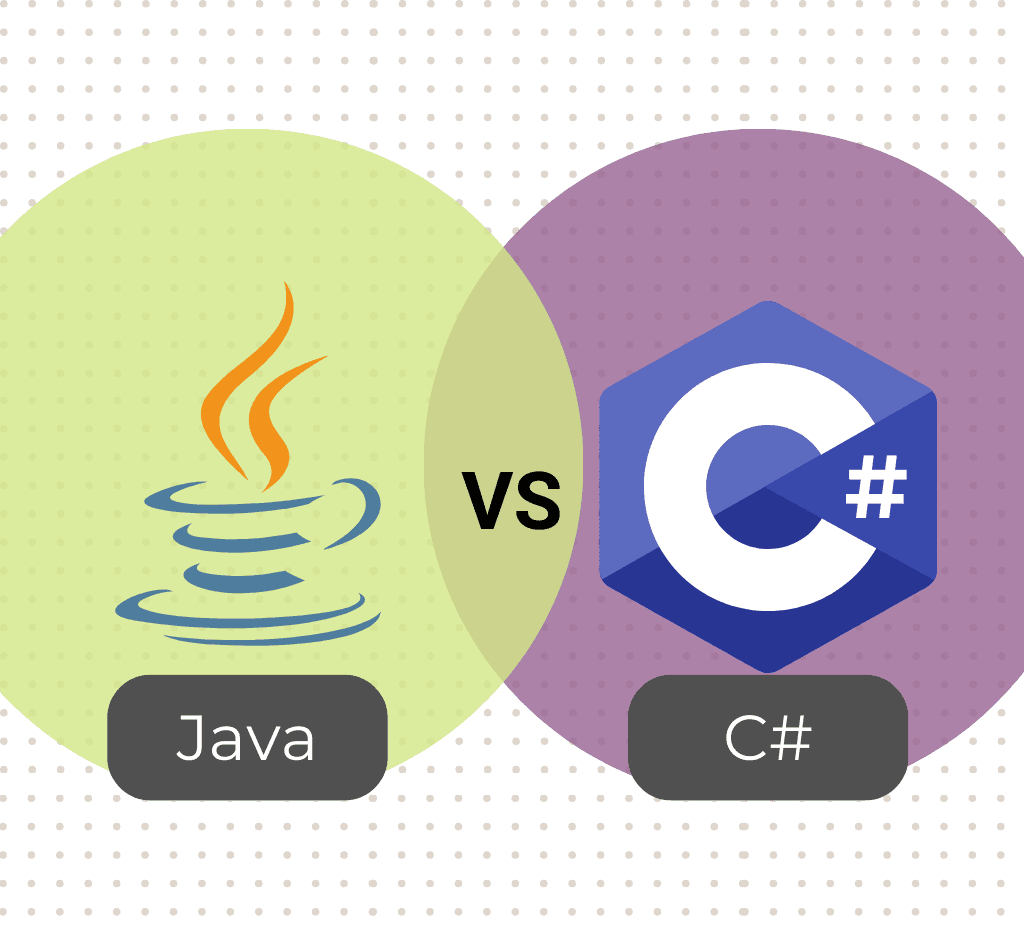Java and C# are two powerful languages that have carved out significant niches in the programming world, but when choosing one for your next project, the decision can be complicated. This post delves into the nuances of Java and C#, offering insights to help you make an informed choice.
Which Programming Language is Better: Java or C#?
The debate over which language is superior, Java or C#, often centers on their performance, ecosystem, application areas, and who you ask. Java, renowned for its platform independence and robust community support, excels in cross-platform applications. On the other hand, C#, with its deep integration with the Microsoft ecosystem, offers a more streamlined experience for Windows-based applications.
Why Do People Use Java Instead of C#?
Java’s popularity stems from its versatility and widespread adoption. Being platform-independent, it allows for seamless operation across different operating systems, a feature highly valued in web and enterprise-level applications. Additionally, Java’s long-standing presence in the industry has led to a rich repository of libraries and frameworks, facilitating rapid development cycles.
Which Software Development Language is More Popular?
Recent reports indicate a notable shift in the programming landscape, with C# gaining momentum over Java in terms of usage and popularity. According to the Tiobe Index, as of October 2023, C# ranks 5th with a 7.71% rating, closely trailing Java’s 4th place at 8.92%. This gap, which was 1.96% in 2019, has significantly narrowed to 1.21%. Notably, C# has demonstrated the most substantial annual gain among programming languages, increasing by 3.29%, while Java has seen the most significant decline, dropping by 3.92%.
Other sources corroborate this trend. Indeed.com reports a marked increase in job postings for C# developers, contrasting with the relatively stable demand for Java developers. Stack Overflow Trends reveal that since 2018, C# has consistently outpaced Java in popularity among developers. Furthermore, GitHub data shows a faster growth rate for C# repositories than for Java.
Despite these trends favoring C#, it’s crucial to acknowledge that.
Java still maintains a significant lead in overall popularity. The Java developer community remains of a more considerable size, and Java continues to be the predominant language for Android development. However, the rapid ascent of C# — especially its expanding footprint in mobile, web, and cloud computing — suggests a potential for it to overtake Java in the foreseeable future.
What’s Better for Future-Proofing?
In terms of future-proofing, both Java and C# are continually evolving. Java’s widespread use in enterprise environments and adaptability make it a safe choice for long-term projects. C#, with its strong backing from Microsoft and growing prominence in cloud and gaming applications, also presents a robust option. The decision should align with your project’s specific technological direction and requirements.
The Implications of Generative AI on Java and C#: Navigating the New Landscape
Let’s consider the present and the future of programming with both languages considering the Generative AI explosion in 2023. Generative AI, a revolutionary field leveraging artificial intelligence to create content, poses significant implications for programming languages like Java and C#. As these technologies continue to evolve, understanding their impact on Java and C# is crucial for developers, businesses, and the broader tech community.
Enhanced Development Processes
Generative AI stands to transform the development process for both Java and C#. By automating routine coding tasks, AI can reduce the time and effort required for coding, debugging, and testing. This shift accelerates the development cycle and allows developers to focus on more complex programming and foster innovation.
Impact on Language Evolution
Integrating generative AI into development tools can influence the evolution of Java and C#. As AI grows in its capacity to understand and generate code, it could drive the adoption of new coding patterns, frameworks, and best practices. This evolution might lead to a more streamlined, efficient, and AI-friendly syntax and library support in both languages.
Shift in Skill Requirements
With AI’s capabilities to handle more mundane coding tasks, the skill set required for Java and C# developers may shift. Developers must hone their skills in overseeing AI-generated code, understanding AI-driven development tools, and integrating AI into their applications. This shift emphasizes a blend of technical and soft skills, including critical thinking and strategic oversight.
Enhanced Cross-Language Integration
Generative AI could facilitate greater interoperability between Java and C#. By understanding and translating code from one language to another, AI tools can help bridge the gap between these languages, fostering a more integrated development environment. This capability would be particularly beneficial in complex systems where both languages are utilized.
Are Java and C# Dying Languages?
Contrary to some opinions, Java and C# are far from dying languages. Considering Java’s immense popularity in enterprise applications and Android app development, its regular updates ensure its continued relevance in the programming world. The language’s adaptability and the community’s commitment to innovation keep Java alive and kicking.
C# has a robust integration in the Microsoft ecosystem, primarily through the .NET framework, and remains a top choice for desktop, web, and mobile application development. Its continuous evolution, marked by regular updates and growing community support, ensures its relevance in emerging areas like game development with Unity and cross-platform applications. The language’s adaptability and alignment with current and future technological trends solidify its position as a vibrant and essential tool in software development.
What type of Application is Java best for?
Java shines in various applications, especially large-scale enterprise solutions, Android mobile applications, and cross-platform desktop applications. Its robust architecture and reliable performance make it a go-to choice for high-traffic web applications and services. The language’s stability and scalability also make it ideal for cloud-based applications.
What type of Application is C# best for?
C# finds its strengths in Windows-based application development, including desktop applications, games using the Unity game engine, and enterprise solutions within the Microsoft ecosystem. The language’s seamless integration with the .NET Framework makes it a preferred choice for web applications on Windows servers. Additionally, C# is gaining traction in developing cross-platform mobile applications through frameworks like Xamarin.
Conclusion
Choosing between Java and C# depends on various factors, including the target platform, application type, and the specific needs of your project. Java offers unparalleled cross-platform flexibility and is ideal for enterprise-level applications, while C# excels in Windows-centric environments and game development. Both languages are robust, versatile, and future-proof, making them excellent choices for modern software development.
Reach out to us to learn more…
For deeper insights into the Java vs C# debate, consider exploring discussions and expert opinions on platforms like Reddit, comprehensive comparisons on Guru99, and performance-focused analysis on Medium. You can also find valuable information on courses and comparisons on Coursera.
Are you looking for more insights? Stay connected to the Unosquare blog for more helpful guides to modern software development, and get in touch today if you need added support for your next project from our experienced and talented development professionals.



